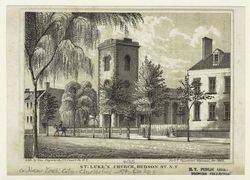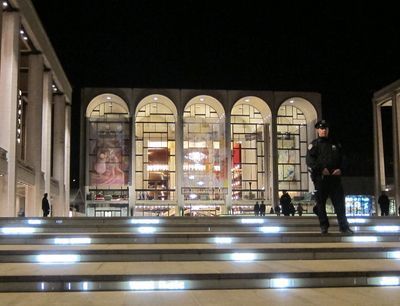Alex Ross's Blog, page 190
May 24, 2012
Beat of the century
Another London Symphony video, in which various Londoners practice the opening bars of "The Augurs of Spring." Valery Gergiev has a cameo.
Met-free miscellany
Timothy Andres, a free spirit among younger American composers, plays a late-night recital at Wigmore Hall on June 8. New Yorkers can hear a preview of his program at LPR next Tuesday. His second Nonesuch album is coming soon.... Tickets for the BAM edition of Einstein on the Beach, in September, will go on sale in staggered fashion next month.... The greatly gifted composer-vocalist Lisa Bielawa, who is leading the chorus in Einstein, performs with friends from the tour at The Stone tonight (Thursday). The late Stefano Scodanibbio receives a tribute at the same venue tomorrow.... The New York New Music Ensemble plays a program of Donatoni, Philippe Hurel, Annelies van Parys, and Gérard Grisey (his Vortex Temporum) at Merkin on May 29. Van Parys is new to me: audio samples on her website suggest that she's a remarkable talent.... A trio of composer portraits coming up at Music at First in Brooklyn Heights: Tristan Perich (May 31), Aaron Siegel (June 1), Ted Hearne (June 2). Mantra Percussion plays at each event.... Zachary Woolfe has an enthusiastic brief review of the new Naïve recording of Vivaldi's Teuzzone, with Jordi Savall conducting. Something that jumped out at me as I listened: "Ove giro il mesto sguardo" (at 29:00) sounds a great deal like "As with Rosy Steps the Morn" from Handel's later Theodora (at 00:48). Incidentally, the legendary 1996 Theodora at Glyndebourne, with Lorraine Hunt Lieberson, David Daniels, Dawn Upshaw, Richard Croft, and William Christie, is now available in the festival's gorgeously produced CD series.... Will Robin has lately put up a bunch of interesting posts at Seated Ovation. I, too, am taken with Michael Mizrahi's Bright Motion album, and especially with the title work by Mark Dancigers.... The American Composers Orchestra will host its annual Underwood New Music Reading Sessions at the DiMenna Center June 1-3. Ryan Chase, Peter Fahey, Michael-Thomas Foumai, Paul Kerekes, Pin Hsin Lin, and Benjamin Taylor are featured this year.
May 23, 2012
Meltdown at the Met
May 22, 2012
Press release from the Met
"Opera News Will Continue to Review Metropolitan Opera Productions"
In view of the outpouring of reaction from opera fans about the recent decision to discontinue Met performance reviews in Opera News, the Met has decided to reverse this new editorial policy. From their postings on the internet, it is abundantly clear that opera fans would miss reading reviews about the Met in Opera News. Ultimately, the Met is here to serve the opera-loving public and has changed its decision because of the passionate response of the fans.The Met and the Met Opera Guild, the publisher of Opera News, have been in discussions about the role of the Guild and how its programs and activities can best fulfill its mission of supporting the Metropolitan Opera. These discussions have included the role of reviews in Opera News, and whether they served that mission. While the Met believed it did not make sense for a house organ that is published by the Guild and financed by the Met to continue to review Met productions, it has become clear that the reviews generate tremendous excitement and interest and will continue to have a place in Opera News.
Stravinsky for all
Ten thousand people fill Trafalgar Square to hear the London Symphony play an all-Stravinsky program. Gareth Davies writes about the event here.
May 21, 2012
Flailing
Opera News will no longer review the Met, apparently at Peter Gelb's behest.
Somnambulation in the West Village
 Last week I reported to the Church of St. Luke in the Fields, in the West Village, to see Sonnambula, a new viol consort that I've mentioned a couple of times on this blog but hadn't had a chance to hear live. The setting was uncommonly pleasant; St. Luke's is one of the loveliest small churches in New York, set amid green spaces and cut off from Sex in the City tour buses. Sonnambula, which was founded by Elizabeth Weinfield, aims to present little-played repertory for "large and diverse consorts of viols." Their latest program, titled "Splendors of the Spanish Renaissance," was more intimate in scale, with Weinfield joined by the viol-players John Mark Rozendaal and Rebekah Ahrendt, the recorder- and dulcian-player Rachel Begley, and the tenor James Kennerley. Nonetheless, the group produced a warm, full sound in two recercadas by Diego Ortiz, Cabezón's Diferencias sobre el canto llano del caballero, and various canciónes and villancicos. Unfortunately, the Montreal-based lutenist Esteban La Rotta, who had been announced for the program, fell foul of visa problems. I'd earlier encountered Kennerley in his capacity as the organist and music director of the Church of St. Mary the Virgin, and wrote about him in my "Cheap Seats" column of 2009. He turns out to be an excellent, true-toned singer, even if, as he admitted during the concert, his Spanish delivery is a touch Anglicized. I look forward to Sonnambula's future perambulations.
Last week I reported to the Church of St. Luke in the Fields, in the West Village, to see Sonnambula, a new viol consort that I've mentioned a couple of times on this blog but hadn't had a chance to hear live. The setting was uncommonly pleasant; St. Luke's is one of the loveliest small churches in New York, set amid green spaces and cut off from Sex in the City tour buses. Sonnambula, which was founded by Elizabeth Weinfield, aims to present little-played repertory for "large and diverse consorts of viols." Their latest program, titled "Splendors of the Spanish Renaissance," was more intimate in scale, with Weinfield joined by the viol-players John Mark Rozendaal and Rebekah Ahrendt, the recorder- and dulcian-player Rachel Begley, and the tenor James Kennerley. Nonetheless, the group produced a warm, full sound in two recercadas by Diego Ortiz, Cabezón's Diferencias sobre el canto llano del caballero, and various canciónes and villancicos. Unfortunately, the Montreal-based lutenist Esteban La Rotta, who had been announced for the program, fell foul of visa problems. I'd earlier encountered Kennerley in his capacity as the organist and music director of the Church of St. Mary the Virgin, and wrote about him in my "Cheap Seats" column of 2009. He turns out to be an excellent, true-toned singer, even if, as he admitted during the concert, his Spanish delivery is a touch Anglicized. I look forward to Sonnambula's future perambulations.
May 19, 2012
Dick Horowitz says goodbye
Richard Horowitz, who has had an astonishing sixty-six-year-run as the principal timpanist of the Metropolitan Opera Orchestra, plays his final performance tomorrow, when the orchestra appears at Carnegie Hall. A lovely article by Fred Plotkin, on the WQXR website, highlights not only Horowitz's many decades in the pit — when he made his debut, in 1946, Lily Pons was singing Lakmé — but also his work as a manufacturer of instruments and maker of batons. (A 1988 Times article tells more about the batons, one of which lies with Leonard Bernstein in Green-Wood Cemetery.) At a recent performance of Traviata, Peter Gelb brought the timpanist before the curtain and made a presentation. Mark Horowitz, his son, filmed the heartwarming moment from the pit. Many congratulations to Mr. Horowitz on his magnificent career.
May 18, 2012
Fischer-Dieskau and the War Requiem (updated)
Not many people in the musical world intimidated Benjamin Britten; Dietrich Fischer-Dieskau was one of them. Below, I've excerpted two letters that Britten wrote to the baritone — the first almost comically meek in tone, the second considerably warmer. They bracket the legendary premiere of the War Requiem, in Coventry, on May 30, 1962. During the recording sessions for that work, in January 1963, Fischer-Dieskau approached Britten with the idea of writing an opera on King Lear. Britten seems to have agreed to the proposal, and, as Philip Reed and Mervyn Cooke observe in the notes to Volume 5 of Letters from a Life: The Selected Letters of Benjamin Britten, Peter Pears began making notes toward a libretto. Then, later in 1963, Britten mentioned the project in an interview with Desmond Shawe-Taylor, and the resulting torrent of chatter, replete with references to Verdi's unrealized Lear opera, seems to have discouraged his interest. The Lear for which Fischer-Dieskau yearned was, in the end, composed by Aribert Reimann; the DG recording of that work is one of the most stunning documents of the singer's art.
Britten to Fischer-Dieskau, 1961: "Please forgive me writing to such a busy man as yourself — you can be sure that if I did not feel very strongly I should not be troubling you! ... I am writing what I think will be one of my most important works. It is a full-scale Requiem Mass for chorus and orchestra ... Peter Pears has agreed to sing the tenor part, and with great temerity I am asking you whether you would sing the baritone. You may not, I fear, be free (the dates of the two performances are May 30th and June 1st, with rehearsals the few previous days), and above all you may not feel inclined to do this, but I am earnestly hoping you may be free and willing... [handwritten] Please forgive me troubling you."
Britten to Fischer-Dieskau, 1962: "I am made happy when I think of our working together, & our meeting with you and your dear wife, in Coventry. It was one of the great artistic experiences of my life ... I cannot say how touched I was by the great trouble you took over the War Requiem, & by your complete understanding of what I was trying to say in this work."
Fischer-Dieskau in his memoirs: "The first performance created an atmosphere of such intensity that by the end I was completely undone; I did not know where to hide my face. Dead friends and past suffering arose in my mind."
Fischer-Dieskau and the War Requiem
Britten to Fischer-Dieskau, 1961: "Please forgive me writing to such a busy man as yourself — you can be sure that if I did not feel very strongly I should not be troubling you! ... I am writing what I think will be one of my most important works. It is a full-scale Requiem Mass for chorus and orchestra ... Peter Pears has agreed to sing the tenor part, and with great temerity I am asking you whether you would sing the baritone. You may not, I fear, be free (the dates of the two performances are May 30th and June 1st, with rehearsals the few previous days), and above all you may not feel inclined to do this, but I am earnestly hoping you may be free and willing... [handwritten] Please forgive me troubling you."
Britten to Fischer-Dieskau, 1962: "I am made happy when I think of our working together, & our meeting with you and your dear wife, in Coventry. It was one of the great artistic experiences of my life ... I cannot say how touched I was by the great trouble you took over the War Requiem, & by your complete understanding of what I was trying to say in this work."
Fischer-Dieskau in his memoirs: "The first performance created an atmosphere of such intensity that by the end I was completely undone; I did not know where to hide my face. Dead friends and past suffering arose in my mind."
Alex Ross's Blog
- Alex Ross's profile
- 425 followers





